How UK trade has fared since withdrawal from the EU
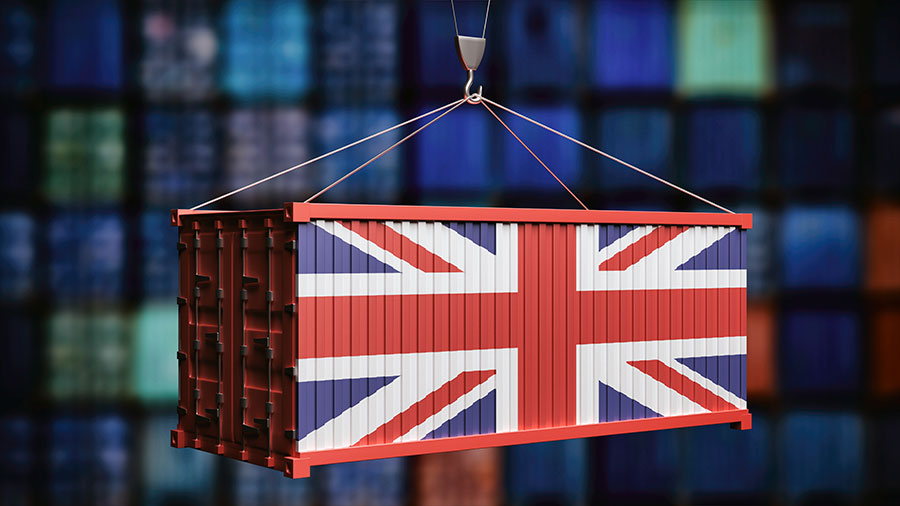 © AdobeStock/rawf8
© AdobeStock/rawf8 Trade has dropped in both value and volume terms across most of the key agricultural commodities since the UK exited the EU on 1 January 2021.
The most significant dip was observed in January when new regulations came into effect.
Several key forces have played a part in this reduction, including increased regulation, administrative costs and lorry driver shortages.
Individual sectors have also faced their own challenges, with the reduced availability of foreign labour affecting horticulture, vegetables and abattoirs, among others.
The pandemic also affected international trade during the past year, as did global logistics pressures and exchange rates.
See also: Labour scarcity and costs to drive dairy decisions in 2022
New trade deals
Since leaving the EU, the UK has looked for new markets around the world for trade deals.
Australia was the first country to negotiate a free-trade agreement in principle with the UK, setting a precedent for negotiations with others.
Before this, an economic partnership agreement with Japan was concluded.
In October, New Zealand – another major agricultural exporter – agreed a trade deal in principle with the UK.
Concerns have been raised over what impact these arrangements will have on UK farmers.
Further trade deals are expected to be established in the coming months. In the meantime, trade continuity agreements have been put in place with a number of countries including Canada.
UK withdrawal from EU impacts on business
From loss of markets to temporary business closures, Both Brexit and the pandemic have had a significant impact on farm businesses. We asked traders and processors how they have been affected during the past year.
Lamb
Rizvan Khalid, managing director at Shropshire-based exporter Euro Quality Lambs, says exports overall for the industry are down by 20%, which is in line with the reduction seen in exports by his family-owned business.
France is the main market for Euro Quality Lamb, although its exports also go to Germany, Belgium and Portugal.
Mr Khalid says the post-Brexit trading relationship has been costly for the business.
“We are estimating between ourselves and our customers in Europe that we have extra costs calculated between £500,000 and £550,000 during a 12-month period,” he said.
These costs include export certification, export declarations, increased administration costs, import declaration costs, border veterinary charges at Calais, and import customs broker charges.
Some exports are reportedly taking longer to reach the continent, with the time taken for border checks varying from an hour to as much as six hours, depending on the day.
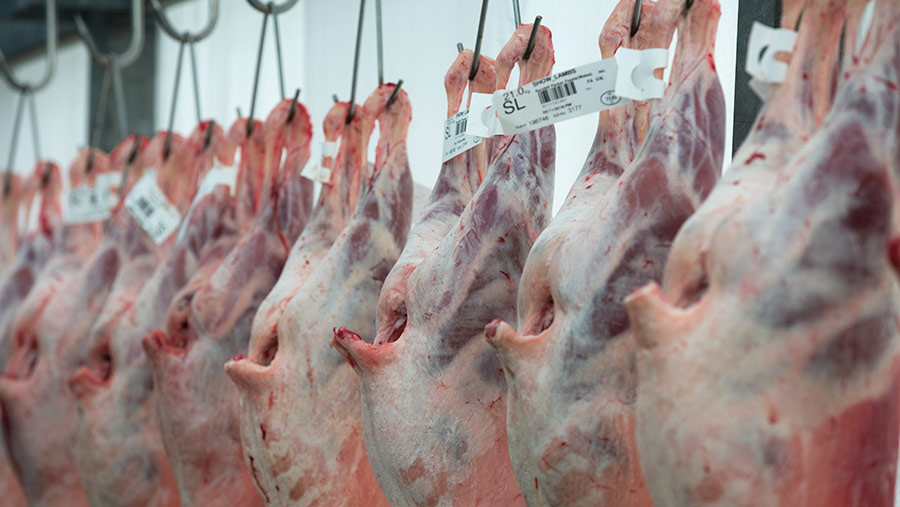
© Tim Scrivener
Lamb supply has also been an issue. “The production of lamb has been down this year, therefore the supply available has also been down,” says Mr Khalid.
“This, linked with imports of New Zealand lamb being lower this year, means supermarkets have been buying a bigger share of UK lamb, which has resulted in there being less available for export.”
The lack of supply has also limited the business, which specialises in halal meat, in its efforts to send lamb to new markets around the world, such as the Middle East.
Cheese
Rich Clothier, managing director of Somerset-based cheesemaker and exporter Wyke Farms, says despite some logistical costs increasing for his business, they are still trading freely and tariff free in Europe.
“Our main concern is the fragility of the trade deal, which is something we never had to worry about before.
“At the moment, we are quite aligned with European standards, but if we diverge from these standards, then this might put pressure on the trade deal.
“There are also worries of impacts from other sectors such as fishing and how that might lead to disruption,” says Mr Clothier.
“British cheese exports into Europe have been down this year by around 10%-20%.”
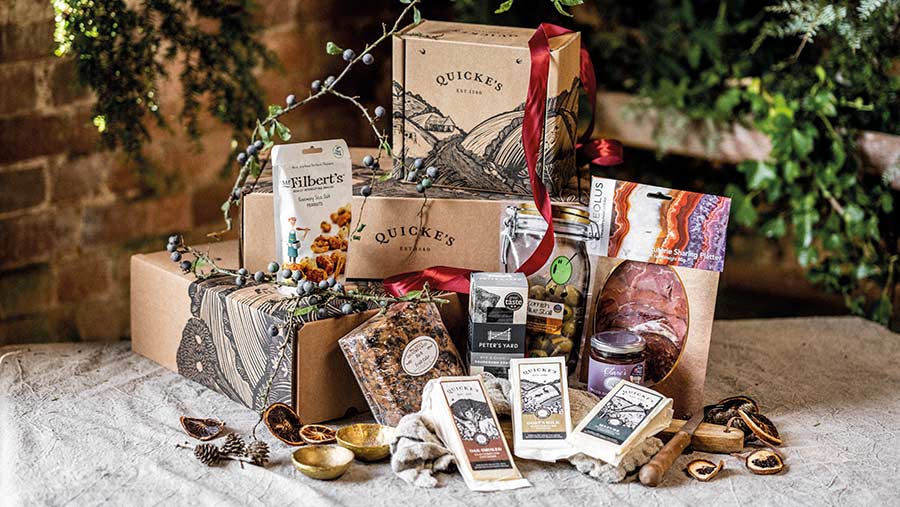
© Quicke’s Farm
At cheesemaker Quicke’s Farm, managing director Mary Quicke has seen exports drop from about 40% of her business’s revenue to 23% since Brexit, although the pandemic has also played a role in this decline.
In the financial year April 2020 to March 2021, overall sales were down 25% for the cheesemaker.
Previously 40% of domestic sales for the business went into the food service sector and 20% to supermarket deli counters.
Both of those dried up during the early months of the pandemic.
However, more cheese went into farm shops and independents, while online sales increased sevenfold.
“Exports to Europe are now just so clunky, so difficult and so expensive,” Ms Quicke says.
“Where we had been developing some new markets, these have all pretty much stopped. In January 2021, our business did not export any cheese to Europe, although sales have built up a little bit since.
“Given the relatively small volumes that we are selling, the paperwork requirements are just hideous, and that’s been really difficult.”
The business already had good export markets further afield, with the US being its largest customer and Australia the second-largest. However, volumes of exports to both countries fell as Covid restrictions took hold.
Sales are now improving, although they remain below pre-pandemic levels.
Rising costs and staff shortages are two key watch points now, and the business is working to offer competitive pay and a five-day week in order to attract staff.
Red meat
Exports to Europe are down across the board. The key decider for how species have fared in the past year is that the impact of Brexit came at a time for the sheep and beef sectors when supply was lower, whereas the pig sector has been caught when there are lot of pigs available and an oversupply in Europe as well.
Farmers Weekly spoke to several beef exporters who acknowledged their businesses had been affected to some extent by staffing and lorry driver shortages.
However, they said this was due to a combination of factors and they were unwilling to give figures for the specific impact of Brexit.
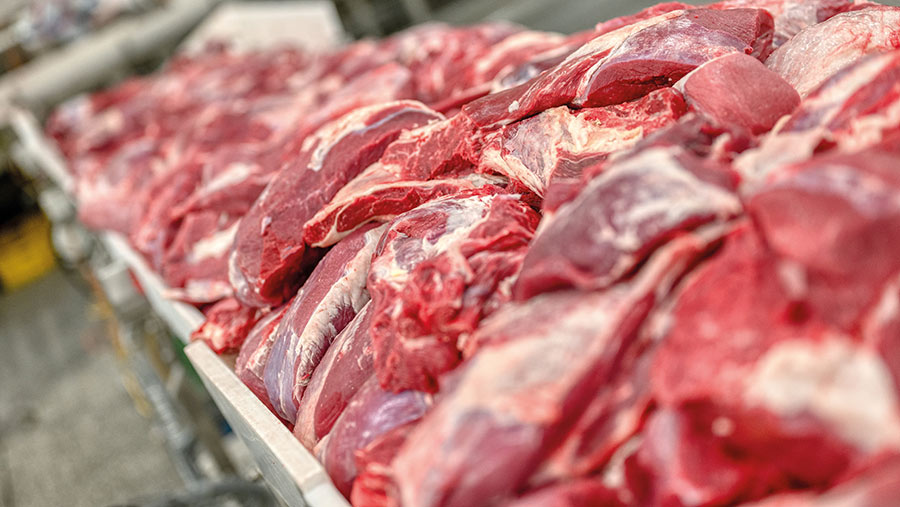
© Nordroden/Adobe Stock
Nick Allen, chief executive of the British Meat Processors Association (BMPA), says it was the costs and bureaucracy around exporting that had really come as a shock for businesses in the meat trade.
“No one really envisaged the bureaucracy and export health certification could be as bad as it was really,” he says.
“As well as the cost of paying for an export health certificate, it’s the army of admin staff you need to actually do it that has been one of the big shocks.”
Export health certification has also made it harder for exporters to send mixed loads on lorries to the continent, as it complicates the process and is seen as too risky. All these factors have led to a decline in exports and increased costs.
Mr Allen says it is important to recognise that staffing issues are a result of the UK’s immigration policy since Brexit, rather than the Brexit process itself.
Labour costs have gone up considerably and the processing sector is about 15% short on staff, with some plants as much as 20% short.
This is leading to some sites cutting back on the number of product lines, according to the BMPA.
Cereals
The effects of Brexit have been much less severe for arable markets, although there are still some associated difficulties such as labour and lorry driver shortages.
Jonathan Lane, ADM Agriculture’s head of grain trading, said wheat and barley had been pretty much unaffected by the UK’s withdrawal.
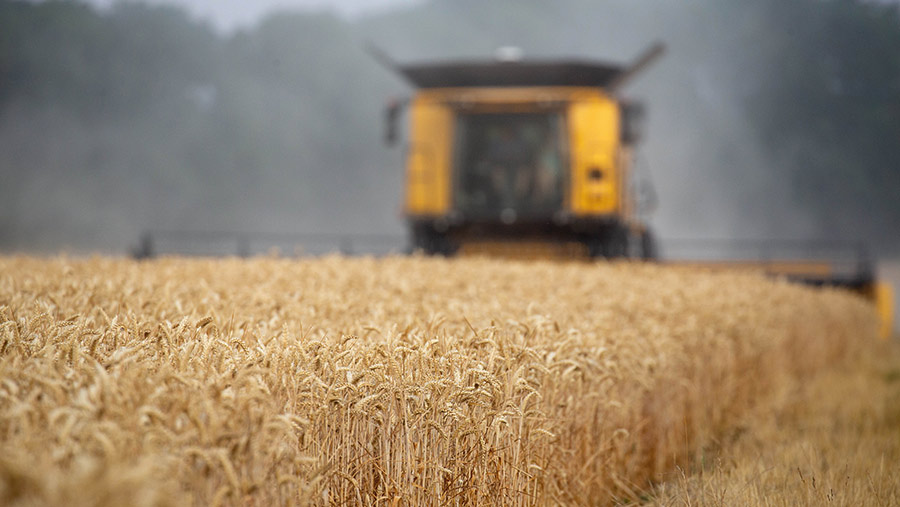
© Tim Scrivener
“From an unprocessed cereals point of view, the fact that the tariff systems and phytosanitary certificates were left as they were has meant it has been largely business as usual.
There hasn’t been a huge amount of change from a UK produced grain point of view,” he says.
“The only area where we might potentially see some difference is now the EU has removed a 25% duty on imported maize.
“The UK is now outside of the EU, so that 25% duty is still in place currently. Trade bodies are lobbying to try and get that amended.”
Pulses
Andy Bury, UK pulse manager at trading and agronomy group Frontier, says issues such as logistics have had a much bigger impact on the sector in the past year than Brexit.
“The biggest feature in the pulse trade right now is logistics. We don’t have any tariffs going into Europe. Customers in Europe can still buy UK feed beans and we can still supply them,” says Mr Bury.
“Our business has not really been impacted, because we are doing all the necessary paperwork that we have always had to do anyway.”
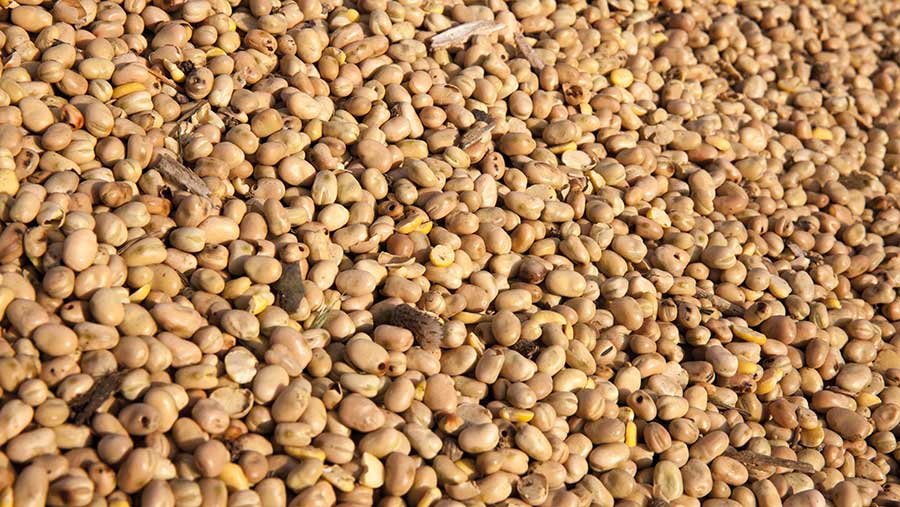
© Tim Scrivener
A lack of containers and a price increase of between 10% and 40% for containers are posing an issue to the sector, though.
The quality pulse products the UK exports to the Middle East, East Africa, China and the Far East are all shipped in containers.
Mr Bury says getting container suppliers to give a fixed price and then to supply them on time when a shipping agent has been organised is just not happening.
Oilseeds
Owen Cligg, trading manager at United Oilseeds, says that aside from paperwork changes, the UK’s exit from the EU has not resulted in major issues for the UK oilseeds market, as rapeseed trading between the UK and EU is tariff-free.
Because the UK never adopted the euro, exporters have always had to manage currency exchange when trading with the bloc.
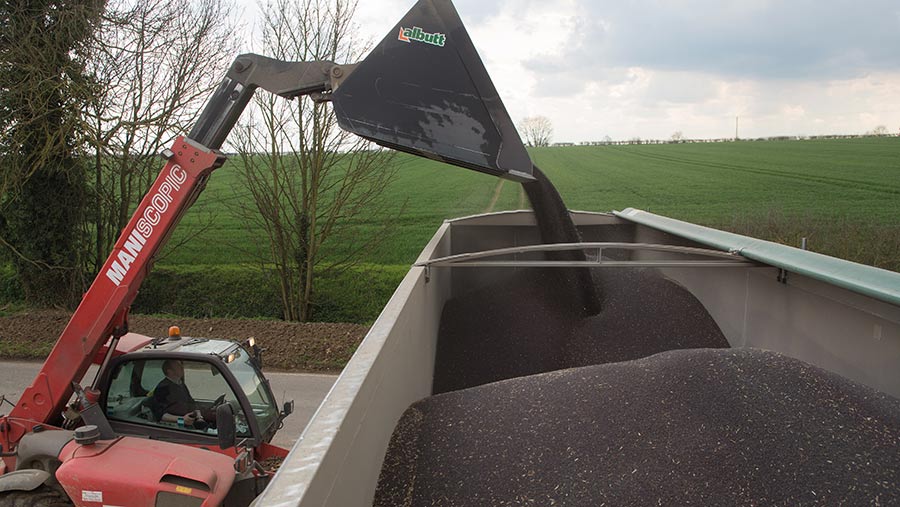
© Tim Scrivener
“While the Covid pandemic has had a highly deleterious effect on the UK economy, its effect on the oilseeds market has not been so severe, although the Europe-wide lockdowns did negatively affect rapeseed demand for biodiesel use and vegetable oil demand from food processors and outlets,” says Mr Cligg.
However, labour shortages in the haulage sector are likely to affect the oilseeds sector. The UK haulage and logistics industry is facing huge challenges, with 50,000 job vacancies.
“The cost of transporting OSR by ship has doubled since January and fuel costs have also risen,” says Mr Cligg.
“With farm input costs rising by an estimated 22% and inflation now at 4.2%, it is plain to see there are considerable challenges ahead.”
Potatoes
The potato sector was affected by several complications relating to the movement of seed potatoes to and from the EU earlier this year.
At the start of the year, the UK was initially given third-country status by the EU, meaning exports of seed potatoes to the EU were banned.
However the UK allowed imports of seed potatoes from the EU for an initial six-month period.
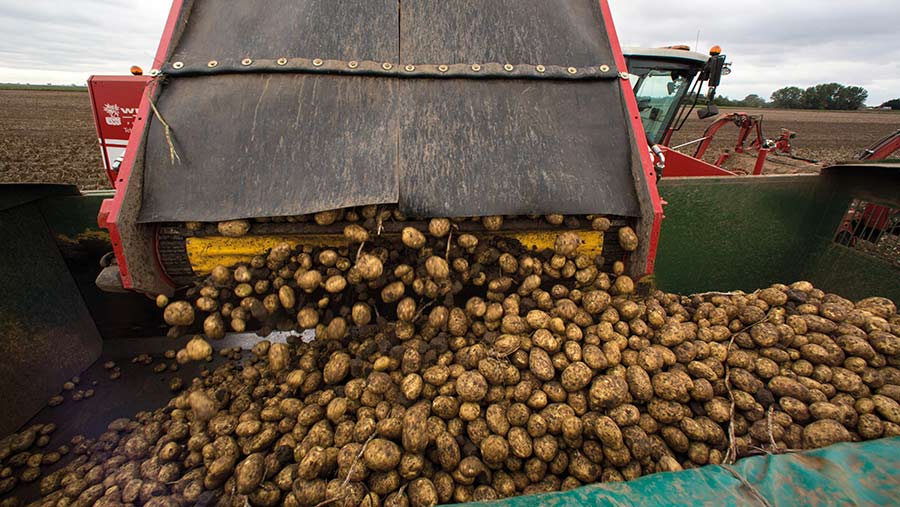
© Tim Scrivener
On 1 July, large-scale imports from the EU of seed potatoes were banned and batches could only come in on a case-by-case basis. This severe limitation has reduced the availability of some varieties.
There is a protocol in place that allows the movement of ware potatoes between Britain and the EU.
